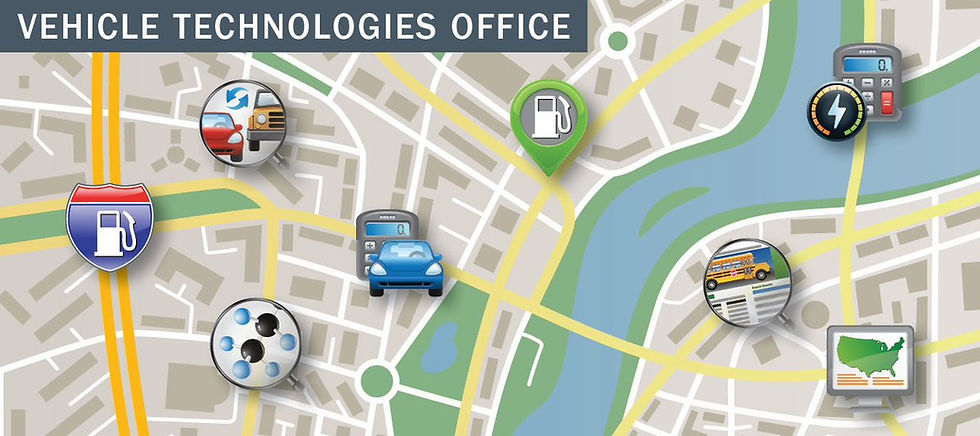WEEKLY DIGEST
- EnergyOSI

- Oct 1, 2021
- 3 min read
October 1, 2021
House bill would channel $3.5 billion
to domestic solar manufacturing
The act would boost investment in U.S. solar manufacturing.
Representative Val Demings (D-FL) introduced the Reclaiming the Solar Supply Chain Act. It would provide $3.5 billion for U.S. solar manufacturing.
If passed, $700 million would be invested annually from 2022 through 2026. The legislation would provide funding for the construction of new manufacturing facilities and to retrofit, retool, and expand existing facilities. Priority would be given to manufacturers that provide the greatest potential for domestic job creation and economic development in economically distressed regions.
Photovoltaics in Africa on the Rise
With many of the continent’s countries paving the way for ambitious photovoltaics projects, a general spirit of optimism prevails in Africa’s budding solar industry. This is the conclusion of the Intersolar Solarize Africa Market Report 2020, prepared by the Becquerel Institute and the German Solar Association (BSW Solar)
with support from Intersolar Europe
Chemical company donates decommissioned
305-kW solar array to nonprofits
Croda International has donated 1,000 SunPower solar panels to three non-profit organizations for use in low-income housing and crop generation.
Decom Solar provides decommissioning and repurposing services for end-of-life solar arrays. Working with non-profits and recycling partners, Decom Solar determines removal solutions for each client.
Related Topic
Decommissioning solar is a current issue that will come to a head in the next couple of decades. Solar systems are long-lasting under the right conditions, yet arrays are regularly put out of commission today.
“We can’t keep up with the calls, to be honest,” said Cesar Barbosa, president at Verdant Project Management
Climate Resilience in America's Hottest City
Mark Hartman, Chief Sustainability Officer for the City of Phoenix, Arizona, talks about how technology is being used to reduce heat and create resilient infrastructure in one of the hottest urban climates in the U.S. Esri Conservation Solutions Director David Gadsden investigates how large cities use location intelligence to increase quality of life for residents and reach green goals in the face of climate change.
Duke Energy’s Sustainable Solutions planning its first wind farm in Iowa
Duke Energy’s newly formed Sustainable Solutions unit, merged from several entities only months ago, is building a 207-MW wind power project in Iowa.
Construction on the Ledyard Windpower site in Kossuth County will be Duke Energy Sustainable Solutions’ first renewable energy project in Iowa. The non-regulated commercial brand of Duke was formed with the combination of several previous units, including REC Solar, Duke Energy Renewables Wind, and other subsidiaries.
Ford plans $11.4 billion investment to build
EVs and batteries
The company will partner with South Korea-based SK Innovation to build facilities to produce and eventually recycle EV batteries.
Iron Battery Breakthrough Could Eat Lithium’s Lunch
Iron-flow technology from ESS is being deployed at scale in the U.S.
The world’s electric grids are creaking under the pressure of volatile fossil-fuel prices and the imperative of weaning the world off polluting energy sources. A solution may be at hand, thanks to an innovative battery that’s a cheaper alternative to lithium-ion technology.
SB Energy Corp., a U.S. renewable-energy firm that’s an arm of Japan’s SoftBank Group Corp., is making a record purchase of the batteries manufactured by ESS Inc. The Oregon company says it has new technology that can store renewable energy for longer and help overcome some of the reliability problems that have caused blackouts in California and record-high energy prices in Europe.
What is the total cost of ownership and emissions
for different #EVs?
How does vehicle charging affect a city’s or state’s electricity demand?
The Alternative Fuels Data Center has tools to answer these questions and more:
DOE launches $2.5 million prize to expand energy justice and inclusiveness goals
DOE launches $2.5 million prize to expand energy justice and inclusiveness goals
The prize is intended to fund organizations working with disadvantaged communities in clean energy as well as foster connections between DOE and innovators.
The $36M #CleanEnergyHubsNY initiative.
NYSERDA’s Director of Climate and Energy Equity, Chris Coll breaks it down for
@CapPressRoom and how it will help unlock #CleanEnergy
benefits in underserved communities.
October 1, 2021 – As part of her barrage of climate week announcements in September, Gov. Kathy Hochul announced a $36 million state commitment toward 10 regional clean energy hubs. Chris Coll, director of energy and climate equity for the New York State Energy Research and Development Authority, which is spearheading the initiative, explains how the money will be spent and the impact the hubs could have.














Comments